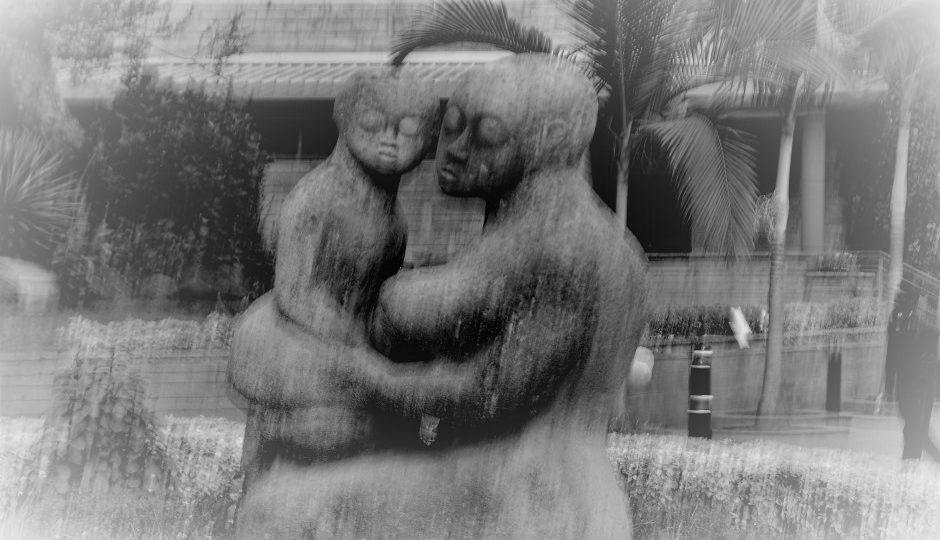Mama na Mtoto (Mother and Child)

Photo From: Nairobi National Museum
Dr. Mary Fleming is a U.S. trained OBGYN who arrived in Mutomo at the end of September 2017. She will be serving at Our Lady of Lourdes Mission Hospital for the next six months. Here, she shares her reflections after watching women make challenging health decisions, in light of financial uncertainty.
Throughout my training, I have been drawn to organizations or institutions that have a mission to serve the underserved. To start with, I attended a college that was founded by a Saint! Katherine Drexel, born to a wealthy family. Instead of spending her fortune on finite possessions, she chose to join the Sisters of the Blessed Sacrament and dedicated her life to improving the lives of black and brown children in the South. The Salt Wagon Story describes an act of kindness, which prompted Samuel Meharry to found the medical college, where I eventually did my residency training. This legacy, started to educate the then disenfranchised Black American population in the South, and continues to address health inequities in this country.
While in residency, our hospital served as the city’s safety net hospital. Though we did care for insured patients, we also provided services for those under and uninsured populations of Nashville. Tennessee at the time, funded a state system called TennCare which worked to fill the gaps for small business owners or those who were unemployed. However, there were those who still fell through the cracks and they came to us. The hospital population included many Black American Women and Latina women, who bear a higher burden of uterine fibroids. Fibroids are benign tumors of the womb that can cause heavy bleeding, pelvic pain and anemia. Multiple treatment options exist, but the definitive treatment is still a major surgical procedure, a hysterectomy. There were times when uninsured women could not schedule their surgery due to their inability to pay, literally going home with the fear of bleeding to death with their next period. When I was looking for my first employed position, I chose to work for a group in Norristown, Pennsylvania, where one of their offices provided similar services for the women of that community.
Here in Mutomo, some patients have the National Health Insurance. However, many still pay out of pocket for their care. This week I cared for a young woman who had been transferred from another facility due to the infant being in breech presentation (specifically the foot was visible at the opening of the vagina). She was rushed for cesarean section on arrival, she, and the infant recovered well. On the day of discharge (day #4), the infant appeared to have yellowing of the eyes. We tested for, and diagnosed him with neonatal jaundice. A relatively common condition of neonates that is treated with light therapy. This treatment requires further hospitalization and monitoring, and therefore an increase in cost.
After two additional days in the hospital, the mother asked me if she could be discharged. I said no, the bilirubin levels were still elevated. She was visibly upset and frustrated with me. I reassured her that it was in their best interest to stay. I tried to explain (with the help of the nurse) that yes, her infant appears fine now. But left untreated, neonatal jaundice can lead to serious complications. She replied, “Daktari, you don’t understand…the bill.”
I get it. I do understand. In that moment I was disheartened that she thought I didn’t understand, but also that I could do nothing to change the dilemma that she faced. Was it possible that she could go home and her newborn son would recover well? Of course. Was it also possible that if left untreated the condition would progress to cause seizures or brain damage? Yes, of course. In either case, why is it fair that a new mother has to weigh the mounting health care costs with the costs to her child’s health?
Many women, many people, face these complicated decisions everyday in hospitals and clinics across the world. I hope that this generation continues to move the needle forward toward supporting the basic right of universal health care coverage for all people.